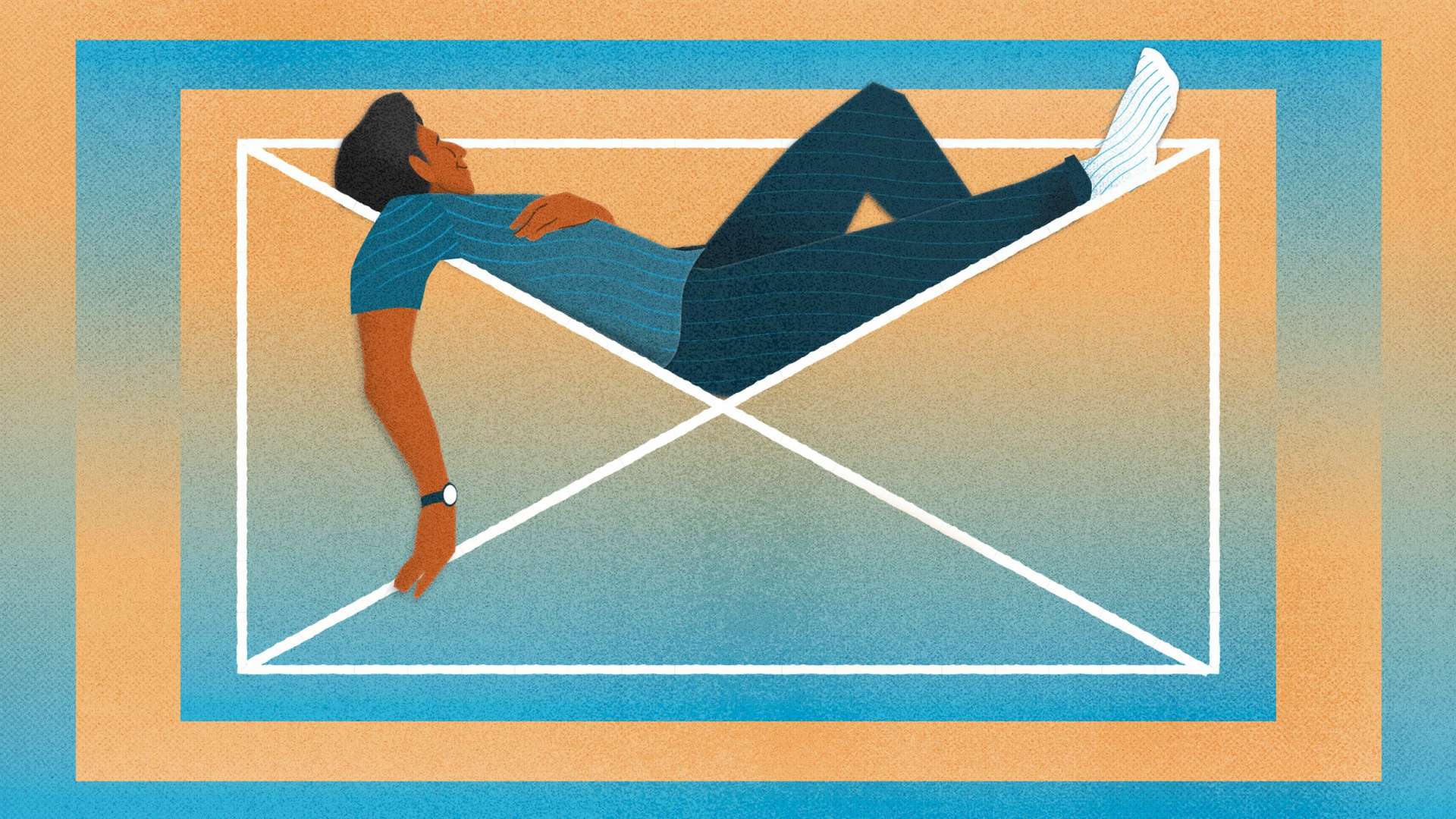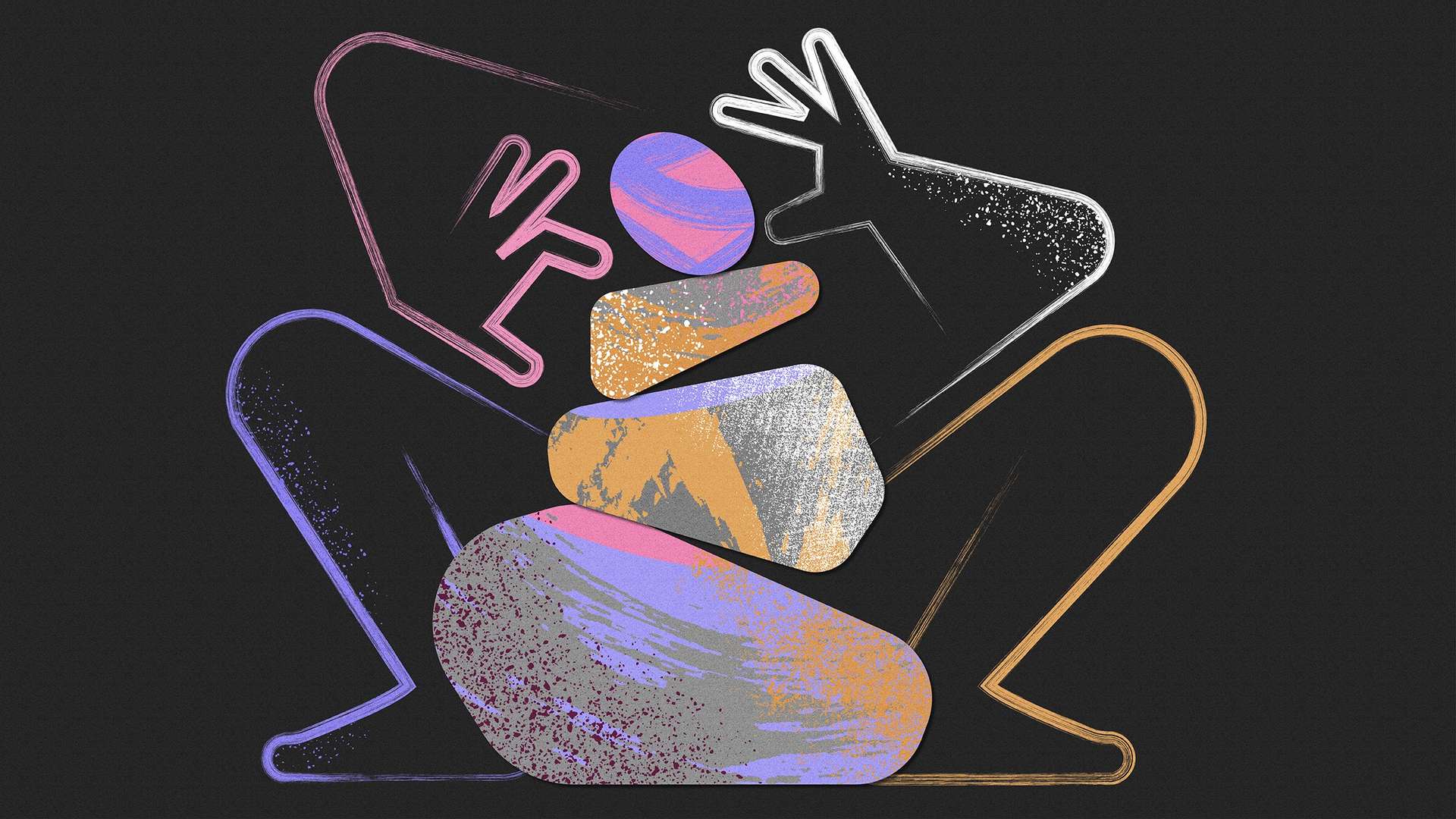As a qualitative user experience researcher at a company with almost 600 folks in various UX roles across design tech, content design, operations, and more, I work with an incredibly talented, high-performing, and world-class team.
We’re excellent at what we do. We have very high standards. We’re hyperachievers. And we’re hard on ourselves. I see UXers all over the company putting so much pressure on themselves. I hear them say things like “Ugh, I wish I could stop thinking about how badly that went.” Or “Ugh, that presentation really fell flat.” Or “Ugh, I’m just so [any negative adjective].”
I’m also hard on myself—more often than I should be. Maybe you can relate. That’s why I want to share how I practice letting myself off the hook when I’m not at my best.
I too walk away from meetings sometimes and think (for days, weeks, or even months longer than I should), “Damn, I shouldn’t have said that stupid thing about [whatever].” Or “Damn, another no-show participant, my stakeholders must think I’m terrible!” Or “Damn, I wish I’d known that there were black beans in my teeth when I met the CEO for the first time.”
This pattern showed up in stark relief for me when I became a manager several years ago. I would see my direct reports stress about things that were out of their control (an impossible recruit) or unlucky things (no-shows)—or things that, yeah, maybe they could have done better or differently. But really, what better way to learn and grow than to make a mistake? Now, I see coworkers of all stripes and experience levels and backgrounds doing the same thing all over the place. And I’m still guilty, too.
The User Experience world prides itself on our ability to empathize. It’s basically a currency for us.
So, as renowned UX researcher and self-care advocate Vivianne Castillo remarks, “If UX is all about empathy and caring about users, why don’t we care for ourselves the same way?”
Self-care, particularly during pandemic times—and particularly for UXers—is all the rage. As it should be. Self-care is pivotal to us being able to do our work long-term. More importantly, it’s pivotal for us to be our best selves wherever we show up.
But I’m not here to write about this traditional self-care, like checking in with yourself at work (which is so hard but so important), and doing something just for you outside of work. I’m not here to write about setting boundaries. Which is so hard, so important—and also, where do you start? Vivianne Castillo’s already written about all of this, and you should check it out. It’s important, useful, and actionable.
Instead, I’d like to tell you about a different kind of self-care: being kind to yourself.
A different kind of self-care
I recently led a research project that, for various reasons—all out of my control—went more or less terribly. The recruit was very challenging, causing the project to carry on much longer than expected, resulting in a few missed deadlines for a lack of actionable data.
At one point during the study, we scheduled a job seeker whom we thought was going to be a great match for our recruit. But as soon as we got on the call with the participant, I knew it wasn’t going to go my way. He may have been a great match, but we’ll never know because he really just wanted (needed) to vent. This isn’t common in our interviews, but it’s not surprising. Indeed is a website that helps people get jobs, and so we often talk to people who need jobs. Sometimes, that’s a difficult position to be in.
After a few minutes, I Slacked my key stakeholder: “Sorry. This is a mess.” I was very stressed. A big UGH! moment.
She wrote back: “It’s okay. He sounds like he really needed this, ha!”
And then I took a breath. She was right that the participant really needed this. He did.
But she was also right that it was okay. It was okay that this didn’t turn out exactly as I wanted or planned and that this person wasn’t going to give us answers to our very specific questions. And it was okay—more than okay—to give this person the time and space he needed to talk.
And I thought, if I were an observer to this interview rather than the lead researcher, I’d have the same reaction as my stakeholder: from a few steps back, it was not a big deal. This kind of thing doesn’t happen often, so it’s okay that it happens once in a while.
This story isn’t about empathy, which as UXers we have in spades. This story is about being kind to yourself. Letting yourself off the hook. Accepting that things don’t always go well. It’s not easy to do, but it is worth it.
How to be kind to yourself
So, how do you actually do this—be kind to yourself? Very intentionally and purposefully. It’s super easy to fall into old patterns, so you’ve got to pay attention. Here are a few ideas from my own experience:
1. Acknowledge the UGH! moment
Recognize how you’re feeling—UGH!—and figure out exactly why you’re feeling that way. Not only the surface-level issue but also the root cause. In my example above, I was upset at the surface that the study wasn’t going well. But deeper in, I was upset that it was making me feel or appear incompetent at my job.
2. Identify what’s in your control—and what’s not
There are lots of things you can control about the work you do and how it influences your team. Lots of things are also out of your control. Take your UGH! moment, and put the controllable and uncontrollable things in two separate columns. In my story, I couldn’t control the participant in my study, but I could control how I reacted to him and to my stakeholders.
—
Is this article helpful? Subscribe to get occasional emails with new stories like it.
—
3. Tell yourself the story
Once you’ve acknowledged how you’re feeling and identified what’s out of your control, tell yourself the story as objectively as possible. Then ask yourself: If a coworker told me this story, would I think, “Oooooh yikes, huge mistake,” or would I tell them, “It’s no big deal. You’ll do better next time, and you learned something this time”?
Regardless of whether you actually screwed up (something in your control that you’re feeling negatively about) or you’re carrying negativity for something out of your control, you’ll probably realize that you’re being too hard on yourself.
Bonus: Keep your coworkers kind, too
This is happening all over the place, and I do think it’s been exacerbated over the past two-plus years because of the pandemic and our increasing isolation. So if you see a coworker getting down on themselves too hard, remind them to be kind with their own experiences.
It’s obvious that high performers need high levels of self-care. But self-care is not just about what you can do to make space and time for yourself through boundaries and other means. It’s also about what you can do to be kind to yourself in your work.
Kindness is everything, even to yourself.





